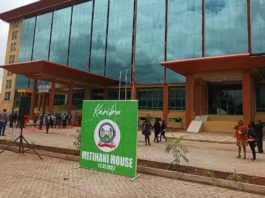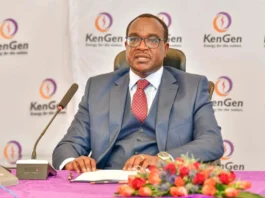Introduction
The United Nations High Commissioner for Refugees (UNHCR) has lauded the Government of Kenya for its unwavering support in providing education to refugees residing in the country. Speaking from Kakuma Refugee Camp, Mr. Ali Duale, UNHCR’s Associate Education Officer, praised the collaboration between the government and the Ministry of Education in ensuring that refugee children have access to quality education, mirroring that of their Kenyan counterparts.
Quick Summary:
- Government Support: UNHCR acknowledges the Government of Kenya’s efforts, particularly through the Ministry of Education, in facilitating education for refugee children, including implementing the Kenyan curriculum and allowing them to sit for national examinations.
- Educational Initiatives: Initiatives such as Government Scholarships, results-based school grants, and school meals programs have significantly motivated refugee children and contributed to their academic success.
- Collaborative Efforts: UNHCR, in partnership with its stakeholders, manages and finances 55 schools in refugee camps, catering to over 98,000 children, with a focus on ensuring compliance with government policies to uphold the quality of education.
Government-UNHCR Collaboration
Mr. Duale emphasized the close collaboration between UNHCR and the Ministry of Education in implementing education programs within refugee camps. This partnership ensures that schools adhere to government standards, fostering a conducive learning environment for refugee children.
Educational Achievements
The success of initiatives like the Elimu Scholarships is evident in the remarkable performance of refugee children in national examinations, with over 60 percent scoring above average in the last Kenya Certificate of Primary Education (KCPE). This underscores the effectiveness of government support in motivating and empowering refugee learners.
Challenges and Solutions
Despite achievements, challenges such as overcrowding and inadequate resources persist in refugee camp schools, affecting the quality of education. However, UNHCR remains committed to addressing these issues by implementing government policies and regulations to enhance learning outcomes.
Integration Efforts
To promote integration, refugee children often attend government schools surrounding the refugee areas, fostering interaction between refugee and host community children. This approach reflects Kenya’s commitment to inclusivity and ensuring that all children, regardless of their background, have access to education.
Conclusion
The commendation from UNHCR highlights Kenya’s dedication to promoting refugee education and fostering a conducive learning environment in Kakuma Refugee Camp. Through collaborative efforts between the government, UNHCR, and other stakeholders, refugee children are empowered with knowledge and skills, paving the way for a brighter future amidst challenging circumstances.




